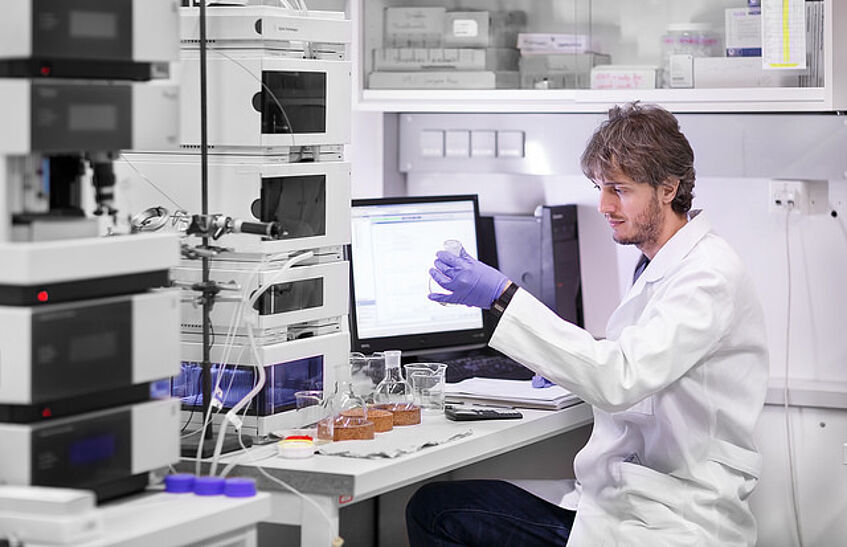Bioinformatics (Master)

© Universität Wien / derknopfdruecker.com
The master's programme in Bioinformatics at the University of Vienna aims at preparing students for scientific work on current research issues in the field of bioinformatics (analysis of big data, structure and dynamics of RNA and proteins, analyses by means of systems biology, genomics, transcriptomics, phylogenomics, metagenomics, metabolomics), using modern methods. Graduates are qualified to represent the discipline adequately, both in basic research as well as in applied research areas. The degree programme focuses on joining methods from the areas of computer science, biology and mathematics to answer questions relating to biology and medicine. It promotes interdisciplinary networks between biological/medical disciplines and other disciplines, such as mathematics, statistics and computer science. The primary language of instruction of the master's programme in Bioinformatics is English. Therefore, we recommend language proficiency in English corresponding to level B2 of the Common European Framework of Reference.
Master of Science
Degree Programme Code: 066 875
4 semesters / 120 ECTS credits
Language: German
NO entrance examination
Facts & Figures
- Students: n.a.
- Graduates in the last academic year: n.a.
- Number of semesters needed for graduation (median): n.a.
Data updated on: 20.07.2023
Attention
Instruction Language German
Please note that the instruction language of this programme is German. To start the degree programme, you need to hold a certificate of German proficiency on C1 level.
Admission Procedure
Information about the admission procedure
Information on the required Letter Description of qualifications
Information on Previous Studies:
In any case eligible degree programmes at the University of Vienna:
Getting started
Study Programme
In the first semester, students have to complete three introductory modules that serve to align their different levels of knowledge, acquired during their respective bachelor’s degrees. More specifically, students will learn or repeat the necessary basics from the fields of biology, computer science and mathematics. In the second and third semester, students have to complete compulsory modules introducing them to the field of bioinformatics. As a valuable addition to their studies, students can choose additional courses from the mathematical-scientific disciplines. In order to complete their studies, students have to write a master's thesis and pass an oral examination (public defence).
Five Concepts
which you will deal with during your studies:
- Big Data
- Genomics
- Metabolomics
- Statistics
- Biological and mathematical methods
... and many more.
Overview of the programme structure & topics
Here you find the current offer of courses for this programme to gain better insight into the topics and structure. For more information please click on the respective level.
After Graduation
Hence, the degree programme generally prepares students for:
- research, both at universities and elsewhere
- fundamental and applied research (for example in medicine, biotechnology, pharmaceutical research, agricultural and environmental sciences, computer science, mathematics)
- research communication
- planning and conducting research projects
- research administration and research management
- subject-specific teaching at post-secondary educational institutions.
Graduates' Perspective on the Degree Programme
Graduates ...
- say that this degree programme receives the grade: 1.5 (excellent)
- rate the level of difficulty as: 4.1 (high)
→ These results are based on feedback from 8 graduates.
*You can find further assessments of the degree programme from its graduates’ perspective in the graduate survey of the master's programme in Bioinformatics (in German).
Graduates ...
- find employment immediately after graduation on average.
- earn an average of € 3,725 (women) and € 3,991 (men) gross per month within three years after graduation.
- work full time at a percentage of 100% (women) and 94% (men) within three years after graduation.
*You can find further information on career entry and career paths in the tracking of graduates "Information and Communication Technologies".
